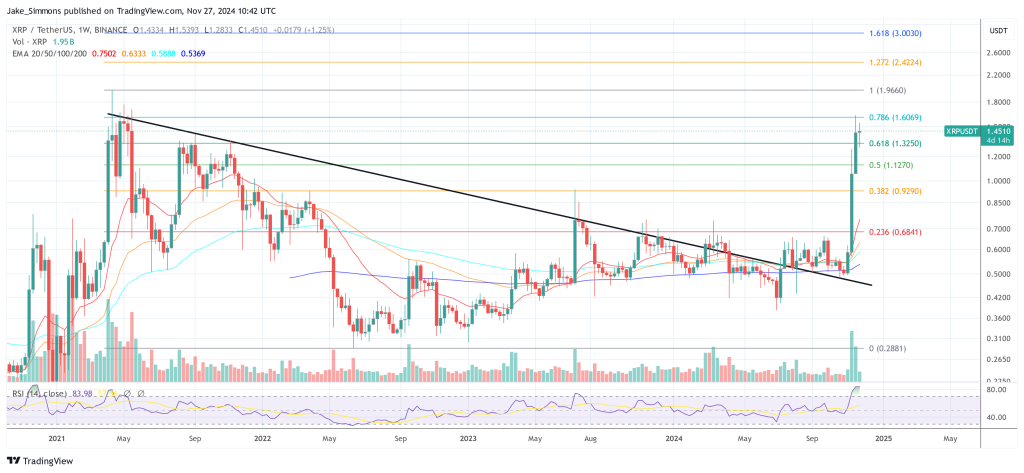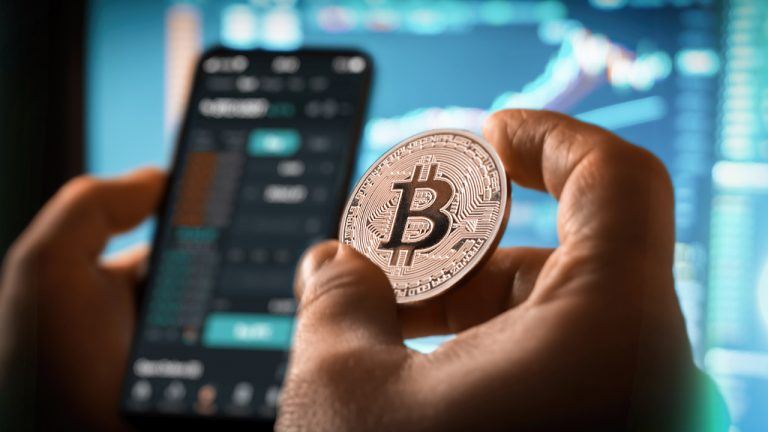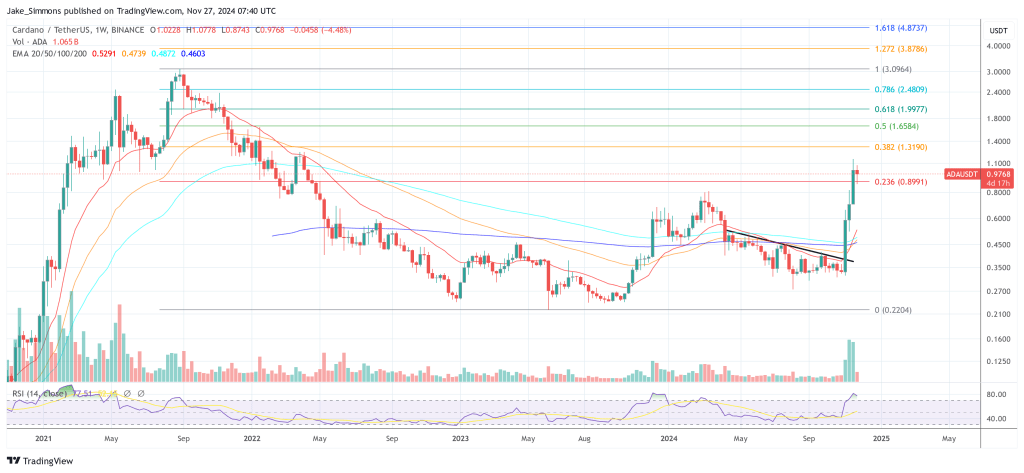While the Olympic Games are the world’s premier showcase for athletes to display their skills, a star of an entirely different kind is also grabbing the spotlight in Beijing – the e-CNY, or electronic yuan. And, so far, it looks as if the world’s first digital currency issued by the central bank of a major economy is set to take the top spot on the podium.
On the opening day of the 2022 Winter Olympics, significantly more transactions were reportedly made with China’s central bank digital currency (CBDC) than through Visa, which has traditionally been the champion at such events, according to CoinTelegraph. Indeed, Visa had had a stranglehold on electronic payments at the Games since 1986. Other than cash, it was the only way to pay for tickets and concessions at official Olympic venues and, if you wanted to buy tickets for events online, you had to have a Visa card.
The main reason for the yuan’s stunning performance was probably summed up by 42-year-old media professional Cai Qianyi, who used his smartphone to buy roast chicken and broccoli at the Main Media Centre before the start of the games. “This is very convenient compared to carrying cash, this way I avoid touching currency notes,” Cai said, according to Bloomberg.
Convenience is key. Consumers can pay by e-CNY in diverse ways, from wallet apps on their smartphones to cards, badges, or wearables like smartwatches and ski gloves. With Sim Pay, a new e-payment tool from telecom giant China Mobile, you can even pay in e-CNY without a network connection or mobile application. And outside of the Olympic venues, various services, including transport, food, hotels, shopping, sightseeing, healthcare, telecommunications, and entertainment, can all be paid for with digital yuan.
Indeed, more than 400,000 payment scenarios have been covered at the Olympics as part of the digital yuan’s pilot project, with transactions exceeding 9.6 billion yuan ($1.509 billion), says Wang Ying, deputy director of Beijing’s Local Financial Supervision and Administration. Moving forward, the digital yuan pilot will be steadily expanded to be used in more scenarios.
e-CNY as a CBDC
While the average consumer will probably never notice the difference between using digital yuan and Apple Pay, for example, what happens behind the scenes after you swipe is quite different. The digital yuan utilizes some of the same blockchain elements as cryptocurrencies. Every transaction is registered and traceable in a digital ledger. A full-fledged central bank-backed digital currency is more like its paper equivalent. You can pay directly with CBDC just like with cash, without having a bank account, which cuts out multiple layers of intermediaries. The money you have in the bank is literally a loan that you’ve made to the bank, and credit on your credit card is a potential loan the bank may make to you.
The People’s Bank of China set out to develop a digital currency in 2014 and began working with commercial banks and internet companies to that end in 2017. It researched the project for six years before launching pilot programs in Shenzhen, Suzhou, Chengdu, and Xiong’an. The digital yuan debuted in late 2019 in 10 Chinese cities, including Beijing and Shanghai.
China kicked off a promotional campaign for e-CNY in December of 2020, when retired Chinese pair skater Shen Xue, a 2010 Olympic champion, swiped a turnstile in the Beijing metro with ski gloves equipped with a digital yuan wallet, making him the first person to pay for a subway ticket using the digital currency. The event was captured on camera for a TV commercial targeting people overseas who might want to attend the 2022 Winter Games. According to China’s Central Bank, by January, over 261 million individual users across the country had registered a digital yuan wallet, which is double the number in October, as reported by Al Jazeera.
But why did China see the need to create its own digital currency in the first place?
China CBDC decision
First of all, the digital yuan will strengthen the Chinese Central Bank’s control over the circulation of money in the country’s economy. With the help of its own digital currency, the regulator will be able to increase the level of transparency of economic transactions, quickly identify possible money laundering schemes, and better manage the country’s monetary supply.
It is also obvious that, by launching its own CBDC, China wishes to break the stranglehold the US has on the global financial system. With tensions between the economic superpowers ratcheting up in recent years, China needs a backup plan should it be cut off from SWIFT, the service that facilitates international bank transfers. With the digital yuan, individuals and companies will be able to carry on making cross-border transactions without a problem, according to Anthony Chan, chief Asia investment strategist for Swiss bank UBP.
Another major reason China launched its own CBDC is to battle the adoption of cryptocurrencies, which have essentially been banned in China, as the Central Bank sees them as a major threat. The reason for this is simple. In recent years, Chinese companies have been actively using cryptocurrencies and stablecoins to circumvent tight controls over cross-border transactions. For example, three years ago, the media noted that many Russian and Chinese companies were using the USDT stablecoin to make mutual settlements. These purchases were estimated to amount to $30 million per day! Transactions made with cryptocurrencies are impossible to freeze because control over it’s completely in the hands of their owner. However, regulators can easily block transactions made with digital yuan, as they are easy to track. By introducing the digital yuan, China hopes to regain control of these multibillion-dollar cross-border cash flows.
However, many people around the world still have the ability to legally take advantage of the ease and speed of making international payments and transfers via cryptocurrencies. Digital currencies like Bitcoin and Ethereum, which are based on decentralized blockchain technology, can also be good vehicles to anonymously and securely store money, as well as profitable investments. One convenient place where you can buy and exchange these digital assets is a platform called Alfacash.
With Alfacash, one can purchase tokens with debit and credit cards, as well as via bank transfers, and exchange a variety of cryptocurrencies on a secure, non-custodial cryptocurrency platform. Its site also offers tools that make it possible to buy cryptocurrencies anonymously. And Alfacash’s low commissions, high transaction speeds, and responsive customer service team makes it stand out among its competitors.
Alfacash also maintains a rewarding referral program and an attractive discount program that allows users to save up to 10% in fees.

You can get bonuses upto $100 FREE BONUS when you:
💰 Install these recommended apps:
💲 SocialGood - 100% Crypto Back on Everyday Shopping
💲 xPortal - The DeFi For The Next Billion
💲 CryptoTab Browser - Lightweight, fast, and ready to mine!
💰 Register on these recommended exchanges:
🟡 Binance🟡 Bitfinex🟡 Bitmart🟡 Bittrex🟡 Bitget
🟡 CoinEx🟡 Crypto.com🟡 Gate.io🟡 Huobi🟡 Kucoin.




















Comments